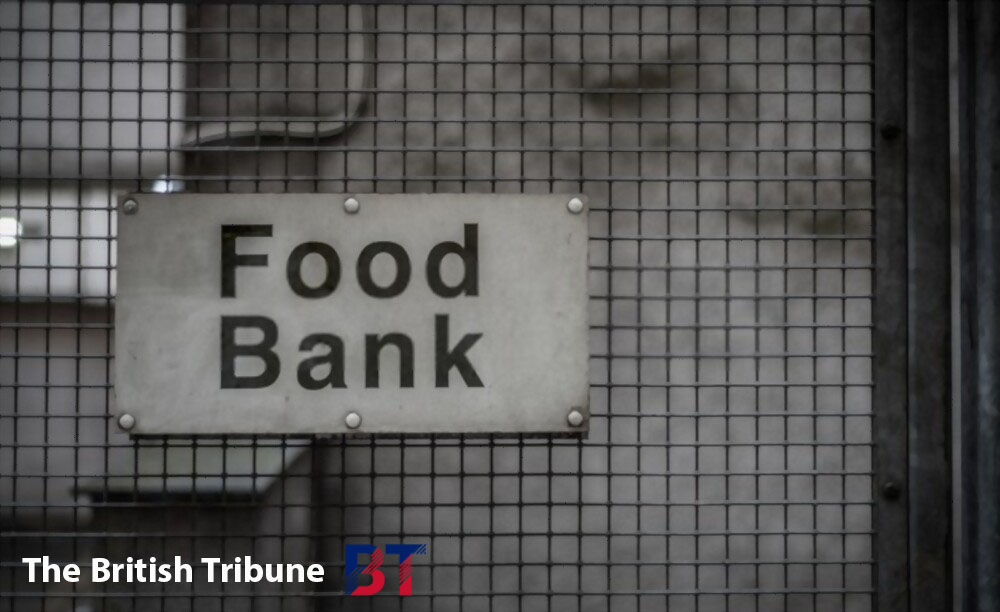Many people in the UK are struggling with the crisis of rising food costs and food poverty. In this regard, the Bank of England announced that the cost of living situation could bring the country’s economy into recession this year. Surveys have shown that Food poverty in the UK is a significant concern for three-quarters of Britons.
- What is the reason for the increase in Food poverty in the UK?
- What measures have politicians in the UK thought of in this regard?
- What is the role of food banks in controlling Food poverty in the UK?
Experience absolute Food poverty in the UK
John Allen, the head of the major British supermarket Tesco, warned about Food poverty in the UK that many people in this country are struggling with the rising cost of food and fuel. He said: “I was in some stores on Friday, and I was hearing for the first time for many years of customers saying to check-out staff ‘stop when you get to £40 or something, I don’t want to spend a penny; over that.” He continued: “There is an overwhelming case for a windfall tax on profits from energy producers fed back to those most needing help with energy prices. We see real food poverty for the first time in a generation.” The head of Tesco expressed hope that the government would act to prevent Food poverty in the UK.
The historical shock on the income of the British
John Allen suggested the government could change how it plans to raise payroll taxes. He also called for rate liberalization to be reformed, saying many smaller shops had lost business as people’s purchasing power declined. Earlier this month, the Bank of England issued a dire warning that Britons would experience a “historic” income shock as record inflation is expected to continue, fueling food poverty.
Eliminate British meals
The Food Standards Agency said the number of people skipping meals has increased in the past year. According to the Food Standards Agency (FSA), the cost of food is a big concern for most Britons, with more than one in five (22%) of those surveyed in March. They Skipped a meal or reduced the size of meals because they could not afford food. Almost 70% said the cost of healthy food was a big concern for the future, and nearly two-thirds of people cited food poverty in the UK and food inequality as a concern for many foods in the UK.
Increasing the use of food banks
Research shows that food prices will be a significant future concern for more than three-quarters of UK consumers (76%), with food bank use up from around one in 10 in March 2021. It has increased to nearly one in six people in March this year. Food poverty was higher among people on lower incomes, younger people, people living in more crowded households and Asian, black, African and Caribbean people.
British food standards after Brexit
UK inflation hit 9% in April, the highest rate in more than 40 years, as the cost of food, energy and transport rose, according to official figures. According to data, shop prices rose in May at the fastest rate in more than a decade. Food inflation rose to 4.3% in May from 3.5% in April, the highest rate since April 2012. Half of those surveyed expressed significant concerns about food standards since Brexit. In particular, many people were concerned that this weakness from abroad would significantly reduce the safety and quality of food available in the UK and exacerbate Food poverty in the UK.
The vital role of food banks in the UK
The Food Standards Agency said it was engaging with businesses to ensure their products were as simple as possible and supporting those working in food banks and the people who use them to find best practices. Follow the instructions for storage, preparation and cooking. FSA Chair, Professor Susan Jebb, said: “In the face of the immediate pressures on people struggling to buy food, food banks play a vital role in our communities. We are urgently working with industry, other major donors, and food bank charities to look at what more we can do together to ensure that food that is safe to eat can be redistributed to people who can benefit from this support.” The agency estimates that food bank charities could still distribute more than 200,000 tons of surplus food yearly.

Finally, UK Government should say that Food poverty can bring the country’s economy into recession this year. The cost of living crisis disproportionately affects certain groups, including people with disabilities or the chronically ill. In addition, the number of visits to food banks in the UK is also higher than the average, and most of those who visit food banks are children.

